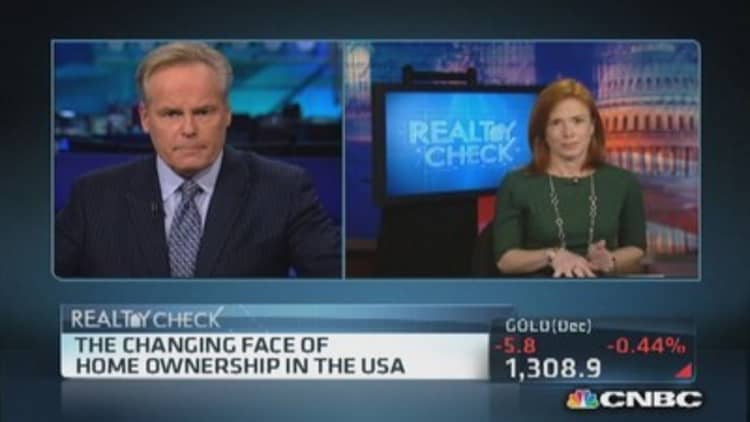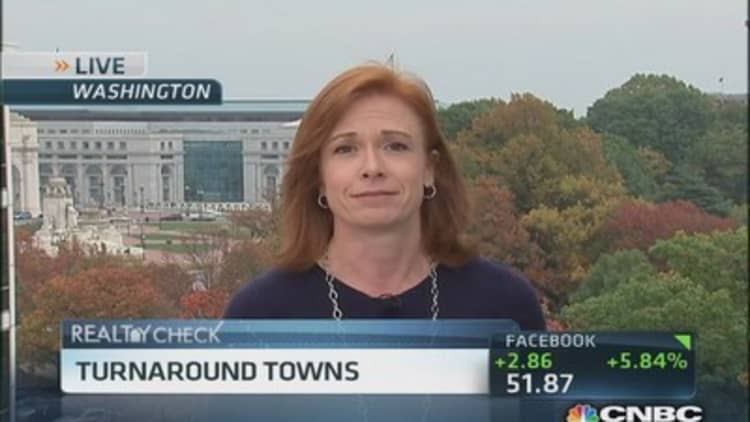
Home ownership is now at the lowest rate in 13 years, and it isn't moving much, despite the recovery in home prices. More disturbing, however, is the dramatic drop in household formation.
Household formation—when a person who lives with someone else (parents, roommates, etc.) moves into another housing unit on his or her own, creating a new household—has averaged around 1 million per year historically as the U.S. population grows. In the early part of this century, when housing was just beginning its boom, it jumped by nearly 2 million. In the third quarter of this year, just 380,000 new households were formed, according to the U.S. Census.
"The share of millennials living with their parents rose from 31.4 percent in 2012 Q3 to 31.6 percent in 2013 Q3, based on the raw Census data," noted Jed Kolko of Trulia, an online real estate company. "During the recession, many people doubled up with roommates or lived with relatives, including young adults who stayed in their parents' homes. Even now, years after the recession technically ended, young adults remain much more likely to live with their parents than before the recession."
That's because younger adults continue to experience weak job growth. They also have more trouble obtaining a mortgage than older adults.
(Read more: Credit cuts out would-be homebuyers)
Kolko estimated that there are 2.4 "missing households" today, that is, people who should be living on their own, either in rental or owner-occupied homes, but are not.
(Read more: Housing's top 'turnaround' markets)
The irony is that the past few years have actually been prime time for home buying. Prices dropped dramatically and mortgage rates hit historic lows, but all-cash investors reaped most of the rewards.
"I think there is a lot of frustration, even rage, that regular home buyers were beat out by investors, that the people who really needed affordable housing were the ones who couldn't get it," said Glenn Kelman, CEO of Redfin, a real estate company.

"When housing went on sale and prices fell through the floor, it became almost impossible to buy a house, and where that became really acute was at the bottom."
The big gains in home prices now, however, could turn that around. Some investors who had originally planned to hold their properties for rent, are too enticed by the potential gains and are selling some of their homes. That would add much-needed inventory to this very tight market and new options for more buyers.
(Read more: Map: Tracking the recovery)
—By CNBC's Diana Olick. Follow her on Twitter @Diana_Olick.
Questions?Comments? facebook.com/DianaOlickCNBC


